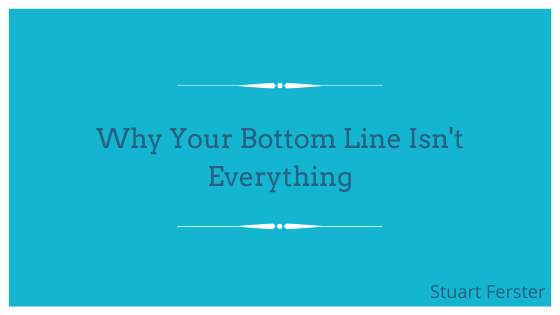All you need is to look at your bottom line to decide on how successful you are, right? It all sounds true until that bottom line begins to dwindle. There’s something that you’ve certainly overlooked if your only strategy is to make money.
Does an Aim for Profits Override Your Ability to Give Answers?
More and more, businesses are discovering the disadvantage in gauging their success solely through the “bottom line.” Researchers are finding that both managers and employees also realize the drawback of a “bottom-line mentality.” Having a BLM—what it’s now called—might lead you to be accountable in some regards, but there are inherent pitfalls to enter if you focus solely on revenue.
The Challenge with Bottom-Line Thinking
The central challenge of focusing only on your revenue is the inability to align it to the contributions from you and your team. Think about what people who buy products and services actually want. They want to solve a problem or fulfill a need. Some buyers even want to improve the things that weren’t a problem in the first place. Your business, for example, won’t become successful by making money in these cases.
Your success would be based on the consumer choosing you. Here are some common mistakes that lead to losses when the sole focus is on making money:
– Putting Finances Before Solutions
Let’s face it, numbers are, more common than not, very arbitrary. You can’t exactly know what, who, when, or where by looking at a single financial digit. Sure, it helps to have some accounting in place, but the solutions you provide for your clients are only effective when they’re useful and cost-effective. Real solutions are ones that we find at a bargain price. What they achieve outweighs what we pay for them.
Remember that you succeed only if you achieve solutions—not sales.
– Doing Things by any Means—but not by Effective Ones
Looking too closely at the financial figures causes you to lose track of your means. Once you pursue your bottom line with a “by any means necessary” mentality, you sacrifice consumer relationships and, ultimately, your product’s value.
Be sure to put the value you give people over the sale that you want from them.

